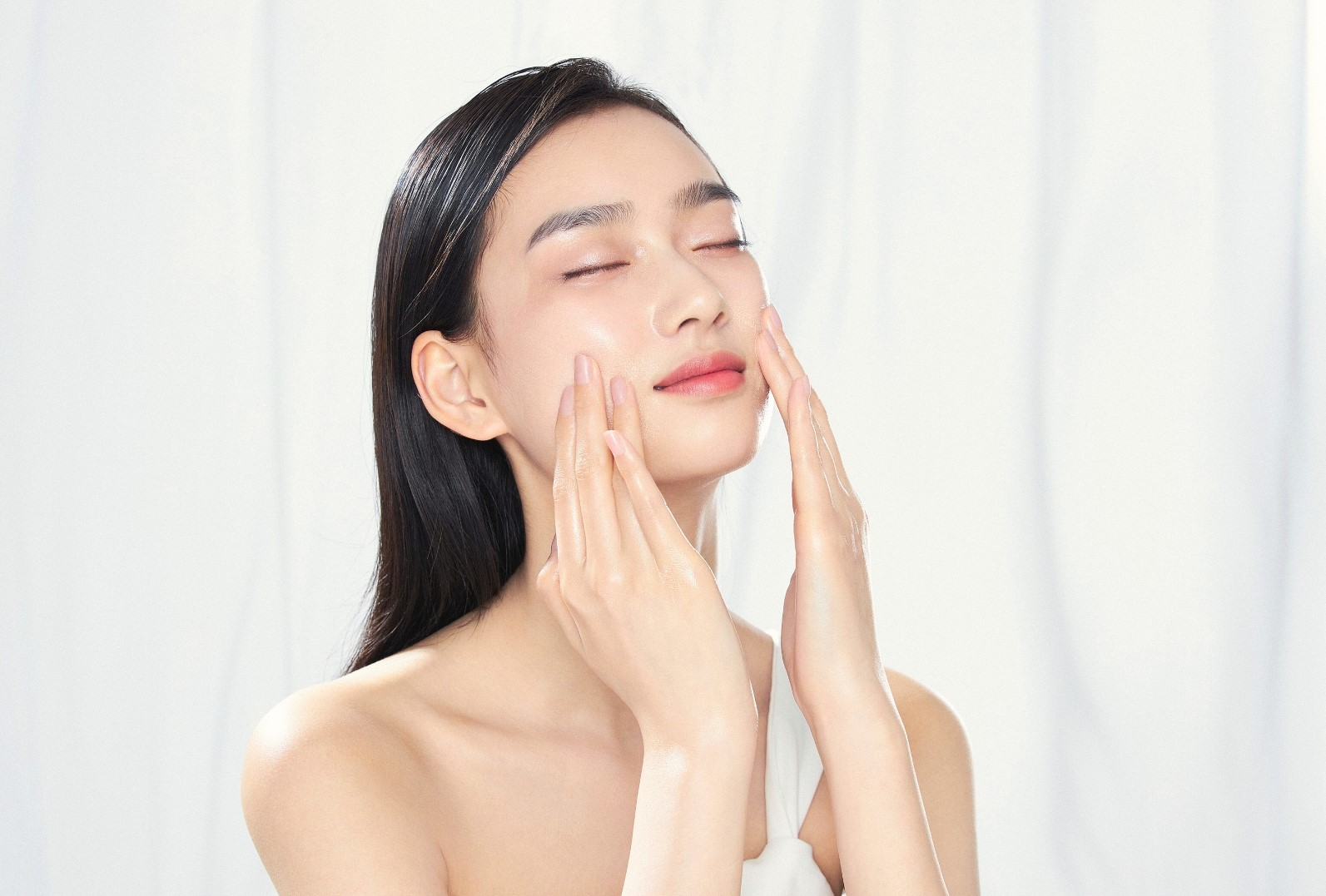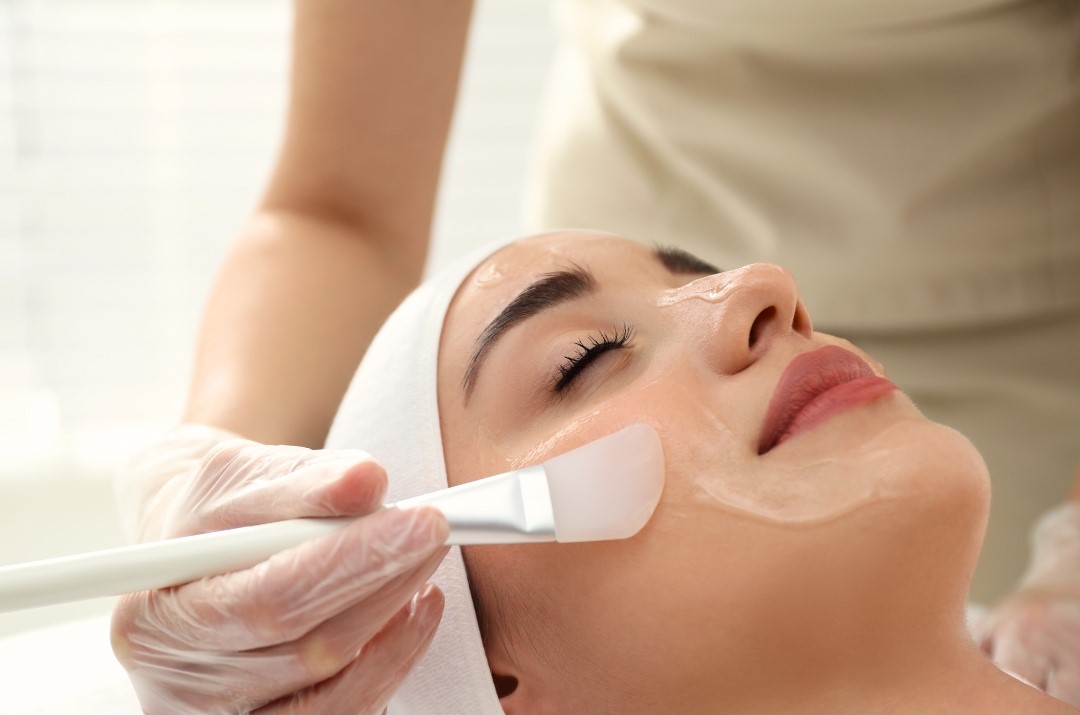
Safety Do’s and Don’ts of Skin Brightening and Skin Lightening
In the pursuit of radiant and flawless skin, people often look to skin-brightening and skin-lightening treatments. From dark spots to hyperpigmentation to dull skin, we all face a range of skin concerns. For each one of these complaints, there is some product that promises to fix it all. But, are skin-brightening products actually effective? Are skin-lightening treatments safe? Before you jump into the next big skincare trend, it is crucial to do your homework.
To help you on your mission to clearer skin, let’s look at some of the essential safety do’s and don’ts for skin brightening and skin lightening. For a complete look at the potential side effects, products that may not be effective, and skin brightening and lightening solutions that work, here is a complete guide to achieve younger-looking skin.
What Is Skin Brightening?
Skin brightening refers to the process of eliminating skin pigmentation, dark spots, and uneven skin tone to achieve a more radiant and even complexion. Getting brighter skin typically involves using a range of skincare products, treatments, and ingredients designed to target issues such as sun damage, age spots, melasma, and other forms of skin discolouration.
The goal of skin brightening is to promote a healthier and more luminous look by targeting factors that contribute to uneven skin tone. These factors can include excessive melanin production, sun exposure, hormonal changes, ageing, and inflammation.

How Does Skin Brightening Work?
When it comes to effective skin-brightening treatments, there are a few different approaches to consider:
- Exfoliation: Removing dead skin cells via exfoliation can help improve your skin texture and promote a more even skin tone. Chemical exfoliants like alpha hydroxy acids (AHAs) and beta hydroxy acids (BHAs) are an effective and safe way to improve your skin texture
- Vitamin C: This powerful antioxidant helps inhibit melanin production and can lighten dark spots. While this is an effective skin brightening treatment, it is important to use stabilised forms of Vitamin C, such as ascorbic acid or its derivatives, in your skincare products to ensure safety and efficacy.
- Retinoids: Derived from vitamin A, retinoids are effective at promoting skin cell turnover and reducing the appearance of dark spots.
- Liquorice Extract: This effective skincare treatment has compounds that lighten the skin and reduce hyperpigmentation.
- Niacinamide (Vitamin B3): Known for its anti-inflammatory properties, this skincare option can help improve uneven skin tone and reduce dark spots.
- Sunscreen: Protecting your skin from the sun is vital for preventing further darkening and discolouration. Sunscreen helps block harmful UV rays that trigger melanin production, and is an important anti-ageing and skin-brightening treatment.
- Chemical Peels: This powerful non-invasive skincare treatment involves applying a chemical solution to your skin to exfoliate the outer layer to promote the growth of new, more evenly pigmented skin.
- Microdermabrasion: This mechanical exfoliation technique removes the outer layer of your skin to promote the growth of new skin with a more even tone.
- Laser Therapy: Various laser and light-based treatments can target melanin in your skin and reduce hyperpigmentation. While there is not a one-size-fits-all option, there are options out there for almost every skin type.
It’s essential to note that the effectiveness of these methods can vary depending on your unique skin type, the cause of the hyperpigmentation, and the severity of the condition. Additionally, some treatments may cause irritation or sensitivity, so it’s important to consult with a professional before starting any skin brightening regimen.

Are There Natural Ways to Brighten the Skin?
There are several safe and natural ways to brighten the skin. Here are some options that may work for you:
- Citric acid: This naturally-derived ingredient acts as a natural bleaching agent and exfoliant. While it can be effective, it is essential to note that citric acid from citrus fruits can increase your sun sensitivity and potentially cause burns.
- Turmeric: This popular spice contains curcumin, which has antioxidants and skin-brightening benefits.
- Aloe vera: The antioxidants in aloe vera may brighten skin while soothing it.
- Papaya: An enzyme called papain in papayas can exfoliate dead skin cells to reveal the fresh skin underneath.
- Vitamin C serums: Topical vitamin C has been shown to inhibit melanin production.
- Exfoliation: Removing dead skin cells allows newer, brighter skin to shine.
- Water: Staying hydrated is one of the best things that you can do for your skin.
While home remedies for skin brightening can be helpful, they won’t offer dramatic results. For a true difference, look for professional skin-brightening solutions. These are safe and effective ways to improve your skin tones.
How Long Does It Take to See Results from Skin-Brightening Products?
It typically takes a few weeks to a few months to see noticeable results from most skin-brightening products. However, the timeframe can vary depending on the following factors:
- Product ingredients: Ingredients like hydroquinone, kojic acid, arbutin, vitamin C, and niacinamide work at different rates. Hydroquinone tends to show faster results in four to six weeks, while other ingredients work more gradually over two to three months.
- Formulation type: Creams or serums with higher concentrations of active ingredients tend to work more quickly than wash-off products like cleansers or toners. Retinoids in night creams also show faster effects.
- Consistency of use: Using your chosen skin brightening product daily and as directed can produce better results more quickly than intermittent use.
- Type of discolouration: Surface pigmentation like sun spots tend to lighten quicker than deeper melasma which can take months to truly fade.
- Individual skin variation: As with most skincare products, different people will see different timeframes for noticeable changes in skin tone and clarity. Lifestyle factors like sun exposure also play a role.
Be patient when incorporating new skin-brightening products. Be aware of potential irritation and give each routine an adequate trial of four to twelve weeks to better gauge results. Consistency is key for achieving optimal skin brightening over time.
Before you begin any skin-lightening treatments, talk to a skincare professional to create the most effective plan for your unique skin type.

Are There Any Side Effects of Skin-Brightening Products?
Yes, some potential side effects to be aware of, with skin-brightening products, include the following:
- Dryness and Irritation: Many brightening products contain acids and exfoliants that can cause stinging, redness, peeling, and dryness if overused. If your skin gets irritated, stop using it and use gentle moisturisers.
- Sun Sensitivity: Ingredients like AHAs, vitamin C, and hydroquinone can make skin more UV-sensitive. Always wear sunscreen when using these products.
- Ochronosis: Hydroquinone overuse can cause this condition where the skin gets darkened patches and spots. Do not use hydroquinone for more than three months continuously without consulting a dermatologist.
- Mercury Toxicity: Some illegal and dangerous skin whitening creams contain mercury. Mercury ingestion or absorption can cause kidney damage, psychosis and toxicity. Strictly avoid products containing mercury.
- Steroid Effects: Misuse of brightening creams with prescription-strength steroids can lead to skin damage, thinning, and poor wound healing from the steroids themselves. Only use as directed by your doctor.
- Rebound Effect: If proper skin care and sun protection are not maintained, darkened skin and discolouration can return when these products are stopped, especially hydroquinone.
If you experience any unusual or concerning reactions to a skin-brightening product, stop usage immediately and inform your dermatologist. Have realistic expectations, do regular patch tests before trying new products, and ease into cautious use.
Can Skin Brightening Products Be Used with Other Skincare Products?
Yes, skin-brightening products can typically be layered with other skincare products, but there are some guidelines to follow:
- Use brightening ingredients at alternate times from ingredients like retinoids, benzoyl peroxide, or vitamin A derivatives which can be drying and irritating. It is important to space these types of products apart in your routine.
- Avoid using multiple brightening products at the same time as this increases the risk of irritation without added benefits. Pick one effective brightener like vitamin C or niacinamide and stick to it. More products don’t offer more results.
- Apply brighteners right after cleansing. Only apply them to clean, dry skin, so the active ingredients can absorb optimally before you add other serums or moisturisers on top.
- Use products with silicone, hyaluronic acid, and ceramides to counter any drying effects from acids and exfoliants in brighteners. These soothing and hydrating products prevent irritation.
- Always use broad spectrum SPF 30 sunscreen as the last step in the daytime to protect newly brightened skin, especially when using AHAs or hydroquinone, which increase photosensitivity.
- Do a patch test first when combining new products to check for any negative reactions before wider application.
- Be very cautious when combining professional procedures like chemical peels or laser treatments with at-home brightening products to avoid over-exfoliation.
Before you create a new skin-brightening routine, consult a professional for guidance on compatible pairings.
Do Skin Brightening Products Work On Age Spots?
Some skin-brightening products can help reduce the appearance of age spots. Here are a few key points about using brightening products for age spots:
- Look for products with ingredients like hydroquinone, kojic acid, vitamin C, niacinamide, retinol, or liquorice extract. These can help inhibit melanin production and exfoliate away discoloured skin cells. However, hydroquinone has a risk of side effects, so should be used carefully.
- Brightening products work best on newer, lighter spots. Long-standing dark spots are harder to fade, as they go deeper into the skin over time. However, consistent use can still help lessen their appearance.
- Sun protection is crucial when using brighteners for age spots. UV exposure makes spots darker and can negate the effects of treatment. Always pair brighteners with a broad-spectrum sunscreen.
- It may take two to three months of daily use to notice significant fading of spots from brighteners. Patience and persistence are key.
- Stop using all of your products if signs of skin irritation like redness, peeling, or stinging occur, and see a dermatologist if irritation is severe. Gentler products may be better tolerated.
Can Diet Affect Skin Brightness?
Yes, diet can definitely impact your skin’s brightness and clarity. Here are some of the key ways that nutrition can affect your skin tone:
- Vitamin C: Foods high in vitamin C like citrus fruits, peppers, kiwis, and strawberries help boost collagen production, protect against sun damage, and even out skin tone.
- Vitamin E: Found in plant oils, nuts, seeds, and green veggies, vitamin E improves moisture and enriches skin’s protective barrier for a lifted dewy tone.
- Beta carotene: Sweet potatoes, carrots, squash, and other orange or yellow produce contain this antioxidant that guards against toxins and dryness to reveal brighter skin.
- Omega-3 fatty acids: Salmon, walnuts, and other omega-3 providers reduce inflammation which can otherwise cause dullness and dark spots.
- Water: Staying continually hydrated plumps up skin cells for younger, more radiant-looking skin all over. Lack of fluids manifests as dryness and a flat tone.
Along with topical products, focusing your diet on the goal of having plenty of water, produce, healthy fats, and key antioxidants can definitely improve skin brightness over time. Be aware that limiting sugar, refined carbs, and alcohol, that cause inflammation, is important too.

What Is Skin Lightening?
Skin lightening refers to the use of products or procedures to lighten skin or reduce the melanin pigmentation in the skin. This is done with the goal of achieving an even skin complexion or tone, diminishing darker spots or discolouration, or lightening your overall skin colour.
Some common reasons people look for skin lightening include the following:
- Reducing uneven skin pigmentation like dark spots from sun damage, acne scars, age spots, or melasma
- Lightening naturally darker skin tones
- Lessening freckles or birthmarks
- Addressing other pigmentation issues like chloasma
What Are Effective Skin-Lightening Treatments?
While there are several skin-lightening products out there, only a key group of active ingredients and treatments have actually been proven to be effective:
- Hydroquinone: Inhibits melanin production
- Kojic acid, arbutin, vitamin C: Prevent the formation of melanin
- Retinoids, AHAs: Accelerate skin cell turnover to peel off pigmented cells
- Laser treatments: Target pigmented cells without damage to the surrounding skin
It is essential to note that there are health risks associated with certain chemical lighteners if used incorrectly or excessively. Very aggressive lighting practices can lead to permanent skin damage and increased cancer risk.
For your safety, it is advised to talk to an aesthethic doctor in Singapore before attempting any significant skin-lightening regime, to ensure safety and determine a suitable treatment plan for you.
How Does Skin Lightening Differ From Skin Brightening?
People often confuse skin lightening and skin brightening but there are key differences.
- Skin Lightening
- This procedure aims to reduce melanin pigment in the skin, making the skin a lighter shade or colour. It may also be done to permanently fade darker skin areas to match the surrounding skin tone.
- This treatment utilises ingredients like hydroquinone, kojic acid, arbutin, and steroids to actively inhibit melanin production in cells.
- Skin Brightening
- This procedure aims to improve the radiance, glow, and overall luminosity of the skin while not necessarily changing the skin colour.
- This treatment uses gentle exfoliating acids or ingredients like vitamin C and niacinamide to improve cell turnover, even tone, and boost collagen and plumpness.
Ultimately, you can see skin lightening as reducing melanin pigment and making the skin lighter in shade and colour. On the other hand, skin brightening improves the vibrancy and glow of the complexion without affecting skin colour.
Some active ingredients can provide both effects, but skin brightening is considered a gentler, safer approach, focused on skin health rather than permanent pigment reduction or bleaching.
Are Skin-Lightening Products Safe to Use?
Skin-lightening products can be safe if used properly but also carry some risks. Many popular skin-bleaching ingredients like hydroquinone, corticosteroids, and mercury are highly regulated or banned in some countries due to a range of health concerns. These can cause irritation, ochronosis, mercury poisoning, atrophy, and other permanent issues when overused.
Safer lightening alternatives include vitamin C, liquorice extract, niacinamide, arbutin, and kojic acid. Even though these are safe, it is essential to check concentration levels as even natural ingredients can irritate at high doses. Above all else, start slowly with any new routine.
Regardless of the ingredients, you should keep in mind that long-term overuse of any lightener can potentially scrape nutrients from your skin, damage collagen, and leave your skin permanently thinner and prone to sensitivity. Note that even if you are using your skincare products correctly and prudently, sun protection is mandatory if you’re using lighteners as they can make skin extremely sun-sensitive, leading to burns, further pigmentation issues, and skin cancer risk.
While regulated, responsible use of newer generation lighteners may not pose major safety issues, consulting a professional is important. A specialist can assess if lightning is truly needed or if alternatives like brightening creams or lasers may be safer options for your goals.

What Are the Most Effective Skin-Lightening Treatments?
Over-the-counter creams may be effective in some cases but if you want to see visible improvement, you need to work with a skincare professional. Here are some treatments that might be recommended to you:
- Topical treatments: Over-the-counter and prescription creams containing ingredients like niacinamide, liquorice extract, vitamin C, and kojic acid can help brighten skin tone and fade dark spots when used properly. Hydroquinone requires caution due to the risk of side effects.
- Chemical peels: Superficial chemical peels with gentle acids can improve radiance and even pigmentation. Deeper peels must be administered by a licensed provider for safety.
- Laser resurfacing: Fractional and other laser treatments can selectively target pigmented lesions without damaging surrounding skin, under proper medical supervision.
- Intense Pulsed Light (IPL): This requires specialised equipment and training to avoid burns or further discolouration, especially in darker skin tones.
- Microneedling: Alongside serums containing brightening ingredients, microneedling aims to boost product absorption and cell turnover for improved tone.
- DNA repair enzymes: Some novel topical enzymes like photolyase show promise at correcting UV-induced DNA damage and reducing resultant pigmentation.
Skin Brightening and Skin Lightening Treatments in Singapore
Want to get on the path to having healthy and clear skin? Whatever your skincare goals might be, we are here to help. Contact us today for safe and effective lightening and brightening treatments that can rejuvenate your skin at our aesthetic clinic today.
Conclusion
Your journey to radiant, healthy skin starts with professional care. At Aeon Medical & Aesthetic Centre, we offer advanced solutions for concerns like acne treatment, wrinkles treatment. We also provide treatments for acne scars and dehydrated skin treatment. With the guidance of our skilled aesthetic doctor, you’ll receive customized care to restore your skin’s natural beauty. Visit our aesthetic clinic in Singapore today to take the first step toward glowing, youthful skin.
